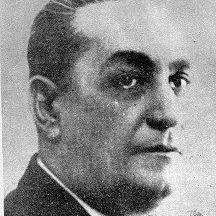Bolivar
translated from the Spanish by Muna Lee
Poet, soldier, statesman, hero, he stands—
Great, like the countries whose freedom he won;
He whom no country can claim as her son,
Though as his daughters were born many lands.
His was the valor of who bears a sword;
His was the courtesy of who wears a flower:
Entering salons, he laid by the sword;
Plunging in battles, he tossed away the flower.
The peaks of the Andes to him seemed to be
But exclamation points after his stride:
Soldier-poet he was; poet-soldier was he!
Each land that he freed
Was a soldier’s poem and a poet’s deed:
And he was crucified.
This poem is in the public domain. Published in Poem-a-Day on October 12, 2024, by the Academy of American Poets.
Muna Lee’s translation of “Bolivar” by Luis Lloréns Torres appeared in the June 1925 issue of Poetry: A Magazine in Verse. In the essay “A Glance at Spanish-American Poetry,” writer and first elected governor of Puerto Rico, Luis Muñoz Marín, noted, “Spanish poetry is dominated by the movement initiated in 1889 by Rubén Darío, of Nicaragua, and by tendencies originating in that movement. In contrast with the poets who performed a similar service in English-speaking America, the Spanish-American modernistas did not break out of the jail of stilted forms to rush exuberantly into the wide open spaces, but assailed and made themselves supremely at home in all sorts of intricate Greek and Gallic palaces and old Spanish castles. […] More important, of course, was the emancipation from the romanticist attitudes which had characterized the two previous generations, and from the pomposity which weighed down poetry as with a load of empty barrels. The modernistas humanized without democratizing the expression of our spirit as rendered in verse.”

